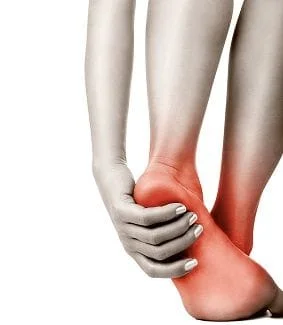Understanding Plantar Fasciitis And Heel Pain?

Heel pain affects everyone from time to time. However, when it persists for longer periods of time--after the uncomfortable shoes have been taken off and the feet have been rested after a busy day of strenuous activity or standing--and does not resolve on its own, it could be a sign of plantar fasciitis. Dr. Sara M. Bouraee, podiatrists at Hampton Roads Foot & Ankle Specialist in Hampton, VA and Williamsburg, VA, wants to help you understand this potential source of your pain.
Signs and Symptoms of Plantar Fasciitis
The heel bone and toes are connected by a thick band of connective tissue that stretches across the bottom of the foot, known as the plantar fascia. Inflammation of the tissue leads to stabbing pain that is most intense in the morning after waking up, or after long periods of sitting or standing throughout the day.
While anyone can develop plantar fasciitis, the most common causes of the condition include:
- Running
- Being overweight
- Walking/working out with shoes that do not provide adequate support, especially for people with a high arch, flat feet, or biomechanics issues that cause weight to be distributed unevenly as a person walks and stands.
How Does the Plantar Fascia Become Inflamed and Injured?
The plantar fascia primarily provides shock absorption to the heel and foot. Through increased pressure, repeated stretching, and wear and tear, the tissue can develop small tears that lead to painful swelling and inflammation. In addition to long-distance running and obesity, plantar fasciitis can also develop as a result of other factors including:
- Increased age
- Physical activities like ballet and other sports that involve added stress and pressure on the heels
- Occupational risks for developing chronic heel pain are higher for professionals who spend long hours and shifts on their feet, such as teachers, nurses, and retail workers
- Irregular gait, overpronation
Also known as heel spur syndrome, the condition is often successfully treated with conservative measures, such as the use of anti-inflammatory medications, ice packs, stretching exercises, orthotic devices, and physical therapy. Note: Please consult your physician before taking any medications. In persistent cases, Extracorporeal Shock Wave Treatment (ESWT) may be used to treat heel pain.
Do you need proper heel pain and plantar fasciitis care?
Call Hampton Roads Foot & Ankle Specialist in Williamsburg, VA at (757) 220-3311 or in Hampton, VA at (757) 224-7605 to learn more!
